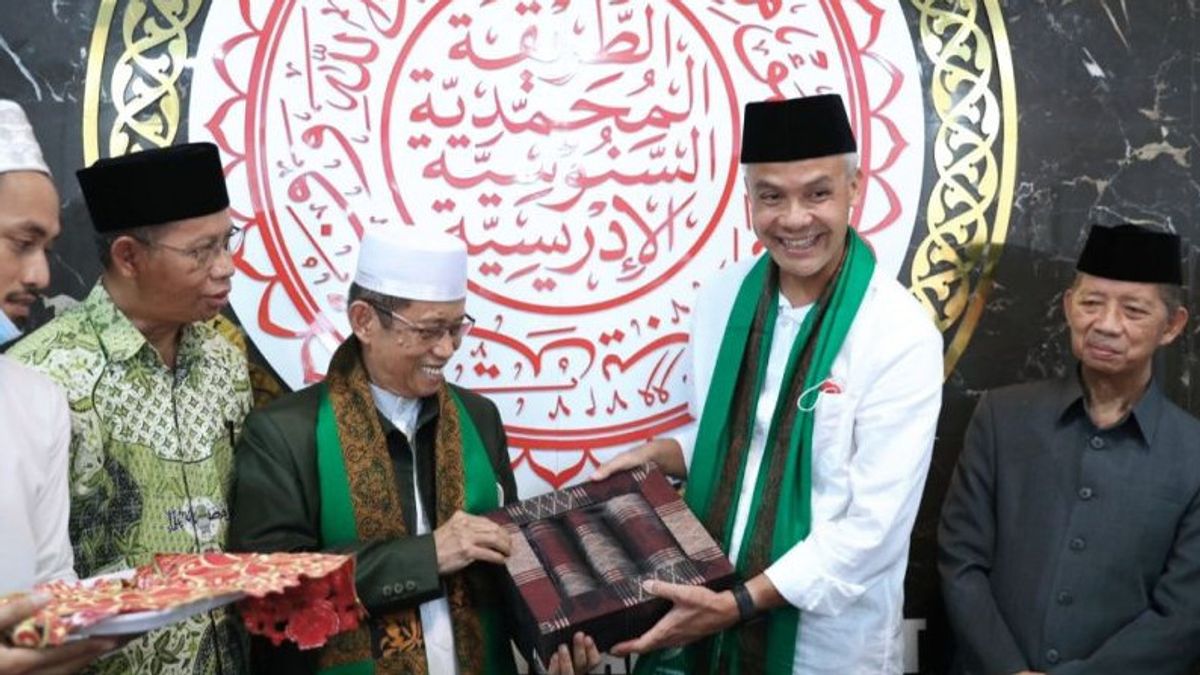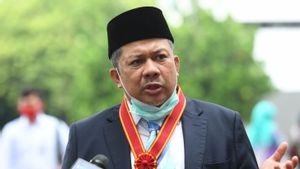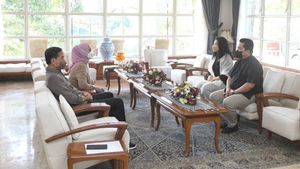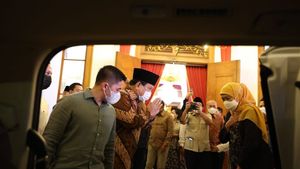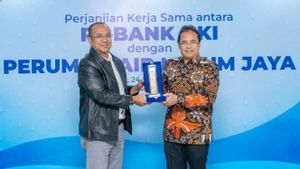MAKASSAR - The Governor of Central Java, Ganjar Pranowo, met Rais Syuriah, Head of the Makassar Nahdatul Ulama Branch, KH Anne Gurutta Haji (AGH) Dr Baharuddin, at his private residence, Jenderal Yusuf Street, before leaving Makassar, South Sulawesi.
"This is just a gathering, we have scheduled to talk about many things. But because we don't have much time, I only have a relationship. Well, it's to build communication," said Ganjar to reporters, after meeting KH Baharuddin, Sunday, May 8.
He said that he had been intending to meet with scholars in Makassar, one of which was KH Baharuddin, who is now the chairman of the Makassar Indonesian Ulema Council (MUI), but it was delayed due to the Covid-19 pandemic engulfing various regions in Indonesia.
In addition, Pranowo also conveyed that the Central Java Provincial Government cooperation with the ulama had been established. One of them is the Uninhabitable House (RTLH) program and compulsory zakat for the State Civil Apparatus (ASN) in the Central Java Provincial Government.
This program, he said, together with ulemas seeks to help alleviate poverty in the hope of reducing the burden on the underprivileged.
"Of course, the role of the ulama as here I think is the same. I will tell you how we in Central Java also always cooperate with MUI, with Baznas with various activities," he said, quoted by Antara.
Meanwhile, KH Baharuddin appreciated Ganjar's arrival to Makassar, even though his program involved scholars in his government affairs in Central Java. In fact, Ganjar often asks scholars for advice on leadership and nationality.
The chairman of the Makassar MUI also praised the compulsory zakat program for ASN in Central Java which was initiated by Pranomwo and the local National Amil Zakat Agency, so this step was followed by Baznas throughout Indonesia.
"It has been going well. Many regions from outside have come to study in Central Java. So we decided to run the Baznas, we have chosen who can. So it has been formed, it is sustainable," said KH Baharuddin.
He hoped that Pranowo's visit to Makassar would not only be the last visit but that there would be other visits in terms of the benefit of the people and for the welfare of the community.
SEE ALSO:
The English, Chinese, Japanese, Arabic, and French versions are automatically generated by the AI. So there may still be inaccuracies in translating, please always see Indonesian as our main language. (system supported by DigitalSiber.id)
